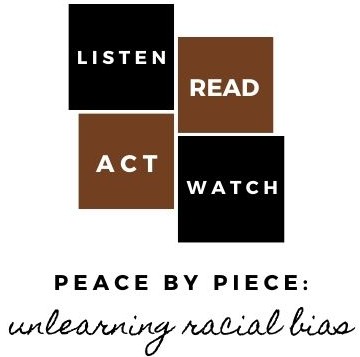This post is part of a year-long series. If my work is helpful for you, consider a contribution through Venmo to support this crucial work of unlearning racial bias.
There is a prevalent lie that is seldom explicitly stated yet whose presence is often palpably perceived: that of black exceptionalism. It is a lie I first encountered on the playgrounds of my childhood, where I was occasionally – hurtfully – told that because I talked “proper,” I must be trying to be white. The lie followed me through tweendom and adolescence. The lie followed me to college where – not for the first time – I was jokingly called an Oreo. Over time, because of my age and that of my peers, the lie became so hushed that I could no longer perceive it and thought it had finally left me to live in peace.
I was wrong.

The lie came screaming back into my present tense upon the recent realization that from the point of view of one colleague, that my presence in this job was desired in part to be a person with whom colleagues can “check in,” “run things by me,” and in general help all students to see how much we all are the same even when our skin color is different.
I find myself – again – in a place where I am forced to come to terms with the fact too often, when I show up in the fullness of who I am, people I think I can trust (within a specific context) want to ignore my race until it’s convenient for their own purposes; then, it’s all they want to see.
The pain and frustration that result from situations like these is tangible and unlike any other. If I hadn’t already done the hard, necessary work of discovering and embracing who I am, and unapologetically loving and affirming my blackness, I would be absolutely destroyed. Time and time again.
As part of my ongoing effort to combat this particular mindset – the idea that black people who are experienced, passionate, and articulate are exceptional only because they are black – this week, I want to share three stories: of black people who are not exceptional because of their blackness alone, but whose life circumstances, drive, and motivation make them exceptional. And while they all are black, their blackness alone does not make them exceptional.

I wrote in July about Bryan Stevenson’s wonderful work with the Equal Justice Initiative. Today, I share with you his beautifully written memoir Just Mercy. Even before it was adapted into an incredibly moving dramatic film, Just Mercy taught millions of readers how life-changing redemption is. How greatly our system of justice has missed the mark of respecting the dignity of those who are jailed, especially black men. How even after wrongfully imprisoned men are exonerated and returned to their families, they may never truly be whole. How our systemically skewed prison system often devours the lives of those it houses. To read, listen to, and/or watch Just Mercy is to witness its protagonist and author Bryan Stevenson living out his true calling with grace and gravitas. It is to be changed. Please hear me clearly when I say to you that Stevenson is a remarkable soul doing world-changing work. He is the definition of exceptional. And he is black. But he is not exceptional only because of his blackness.
When I first watched Precious in the theater with a friend years ago, I wept openly during the closing credits. Like, I couldn’t help it, couldn’t make myself stop at will. To have witnessed this fictional story pieced together with so much of what’s real life for some black girls, cracked open a grief-shaped something inside of me. Precious was born into exceptional circumstances: poverty, dysfunction, abuse. Shouted at and beaten by her mother and sexually abused by her father, Precious gives birth to two sibling-children whom she loves deeply. At first, the only respite Precious possesses is to disassociate from abuse when it happens: imagining herself as a popular, successful, glamorous star rather than to face the abuse she’s repeatedly subjected to. By the end of the movie, Precious has allies in the form of her teacher and social worker, and she has also learned her now-deceased father gave her HIV. The fictional character of Precious is exceptional because she emerges from this cacophony of violence, torment, and unconscionable darkness, into the light of abiding love for her children and herself, and hope for the future she wants for them. Her story is not exceptional only because she is black. Her story is exceptional because her character radiates with brilliance that cannot be muted by omnipresent darkness.

As for Issa Rae, I am so grateful that once upon a time she said that she was rooting for everybody black, not least of all because one day maybe that exclusive group will include me. I was unaware of The Misadventures of Awkward Black Girl when it was an ongoing series in real-time. By the time I was let in on that phenomenon, Issa Rae was well on her way to securing the television home for her current series Insecure. I recommend both series for mature audiences: for their honesty, humor, and the ever-relatable awkwardness of their protagonist, who is really just trying to fumble her way through to successful adulting. Issa Rae herself – the creative behind the shows – is worth watching just as much as her series. In recent months, she has begun developing a record label and has partnered with another company to open a coffee shop. Her Ivy league-educated, visionary, unapologetic way of showing up in the world, and love for the black community make her exceptional – not her blackness alone.
Identity is a sore spot for me. From the playground classmates who marveled and hypothesized at how I talked, to the workplace colleague who wants me to help others transcend race even though that is not the job I was hired to do. Because of others’ expectations, both in-group and out-group, I battled for years to accept that my own way of existing in this world is valid. I will not therefore comply with any attempt to place me in a box that isn’t the precise one I custom-built for my own identity. After all, if feminism at its heart is about taking up space, then so must blackness be. We must have the breadth, agency, and access to create and shape the spaces where we desire to be: bringing our blackness with us as part of the fullness of ourselves, without being restricted to having that blackness define us all by itself.
This week, as you decide what to watch or read from the above suggestions, I hope you’ll ruminate on this question: How has the lie of black exceptionalism – that phenomenal, accomplished, positive black people are outliers rather than the norm – hurt your relationships with black people in your life?
Last week’s post was about unity and culture and nostalgia, and the surprising places from which we sometimes glean our lessons. This week was not that. Conciliatory work isn’t easy, y’all. True reconciliation doesn’t begin and end with having coffee in the company of a black friend or two. It’s deeper than that. As activist and author DeRay Mckesson says, “When we talk about truth and reconciliation, we are reminded that truth has to come before reconciliation.” Keep showing up here to see and share the truth. And I will too. We will find peace when we continue to seek it, one piece at a time.
